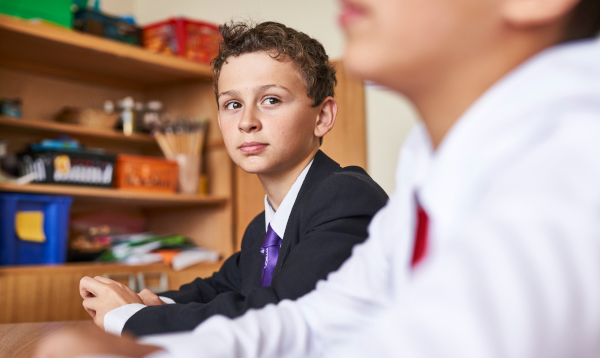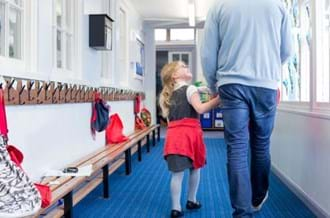Getting ready to start secondary or high school
Getting ready to start secondary or high school
Transitioning to secondary or high school can feel like a huge leap for children and their families.
Our expert advice will help you prepare together and manage the transition from primary to secondary or high school.
What’s different about secondary and high school?
Children have to:
- travel by themselves, wear uniforms and get used to an unfamiliar building
- meet lots of different people, make new friends and find where they ‘fit in’
- be independent and responsible for their learning, including giving in homework on time
- go through some big changes in their brains and bodies as they become teenagers, which can make this even more tricky.
The pressure to ‘keep up’ academically and socially can feel overwhelming – but there are simple ways you can get ready together and develop effective coping skills.

Preparing my child
Check in with your child regularly and remind them that:
- it’s normal to feel both excited and scared – nerves help us prepare for challenges
- it may take time for them to feel settled, and that’s okay
- they might get things wrong as they get used to a new situation
- they’ve coped with big changes in the past and can do it again
- not everything is going to change – some routines will stay the same
- they can talk to you or someone at school if they’re worried.
Are you worried about them? Find out how you can support your child.
Preparing yourself
The first years of secondary or high school can be difficult for families.
Young people may explore their identity by trying new things, taking risks, breaking the rules and putting their friends first.
- Keep talking – young people like to hear that you are interested in their world, and if you know what’s going on in their lives, you might worry less
- Check in while you’re doing everyday things, like cooking or driving somewhere, so that they don’t feel pressured
- Remember that your child still relies on you, and boundaries are needed to keep them safe
- Look after yourself – self-care can be as simple as having a cup of tea, going for a walk or getting enough sleep. All of this helps you to be there for them.
Are you struggling? Find out where you can get help.
News & blogs

Social media, my children and me
Place2Be's Programme Leader for Family Work, Judah, explores how he navigates technology and social media with his children.
Read more
Fostering the power of relationships
Celebrate the power of relationships to transform the lives of children and young people in foster care.
Read more
Place2Be online parenting course now available to organisations
Place2Be's online parenting course helps working parents and carers feel better equipped to manage their parenting journey.
Read more



